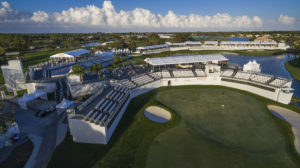Tent rental companies investing in clearspans should expect documentation, customer service, training and more.

Clearspan structures are a major investment for tent rental companies. Before taking the plunge, buyers need to understand what a manufacturer offers in regard to engineering documentation and other certification, product availability, training and ongoing support.
“Clients can expect the validation of Flame Resistant Certification of the fabrics,” says Nate Brancato, president, Liri Tent US, Kansas City, Kan. “Also, the frame materials (e.g. steel or aluminum) and engineering of the structures should meet U.S. engineering requirements and approval. [Purchasers] can expect the validation of wind and live load ratings as well as documentation for installation. We provide this and have a demonstrated history of long-term durability of the structures under rigorous use cases. Clients can safely ask, Can I buy this product and leave it in place or use it at multiple sites for extended time? And we can assure them of this commitment as long as it is properly installed and cared for until taken down, as well as stored properly.”
Tent rental company purchasers should also want to know what kind of training and support they will receive from the manufacturer, says Joe Langehaug, regional sales manager for Losberger De Boer Group, Frederick, Md. “I certainly wouldn’t want someone to drop it off on my doorstep with a set of instructions. The manufacturer should provide training on how to install, transport and store efficiently. For example, on larger clearspan tents, heavy machinery is needed to raise the arches. A client not properly trained could result in someone getting hurt or worse.”
Buyers should also ask how long it will take to get their order. “Depending on where it gets shipped out of, there could be a swing of months if it has to come from overseas versus a U.S. warehouse,” Langehaug says. “They should also find out what parts and pieces the manufacturer houses in the U.S. for quick shipment. Imagine if a rental customer breaks
something on the tent. It’s a big hit to the bottom line to take something out of a rental fleet for months so that replacement parts can be shipped in from overseas.”
Finally, consider the manufacturer’s reputation in the industry, says Keith Krzeminski, executive vice president, Shelter Structures America Inc., Palos Verdes Estates, Calif. He recommends asking these questions: Does this brand have a good track record within the industry? How does it compare to other brands? What is the brand’s value proposition—what makes it the company you should do business with? What is the return on investment for a brand’s products? What type of product support does the brand offer?
Bruce N. Wright, AIA, is an architect and consultant to designers, architects and related professionals, and a frequent contributor to Specialty Fabrics Review, Fabric Architecture and Advanced Textiles Source.
 TEXTILES.ORG
TEXTILES.ORG


